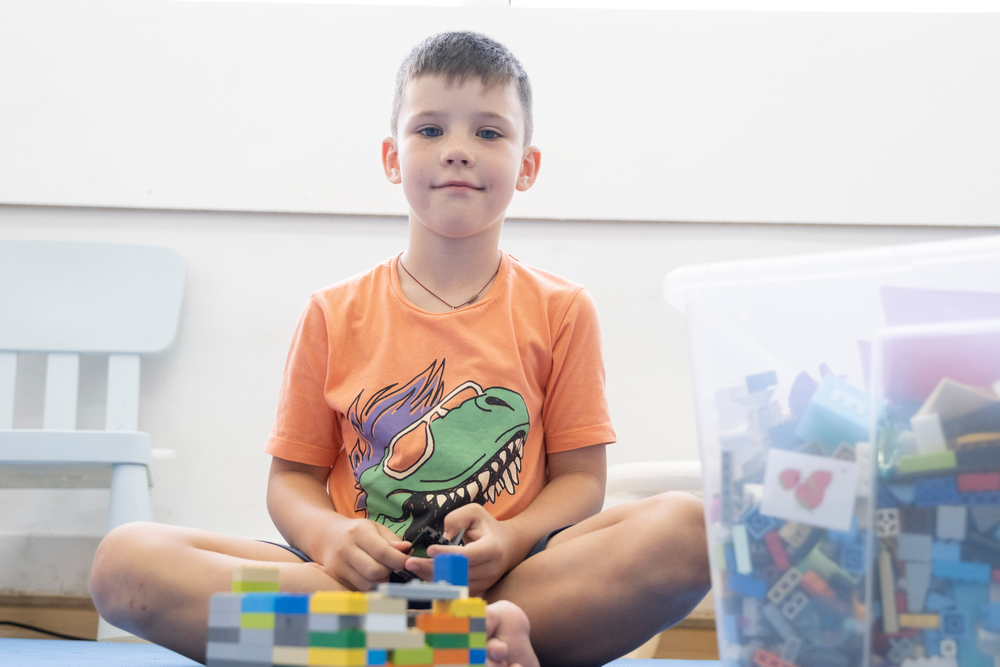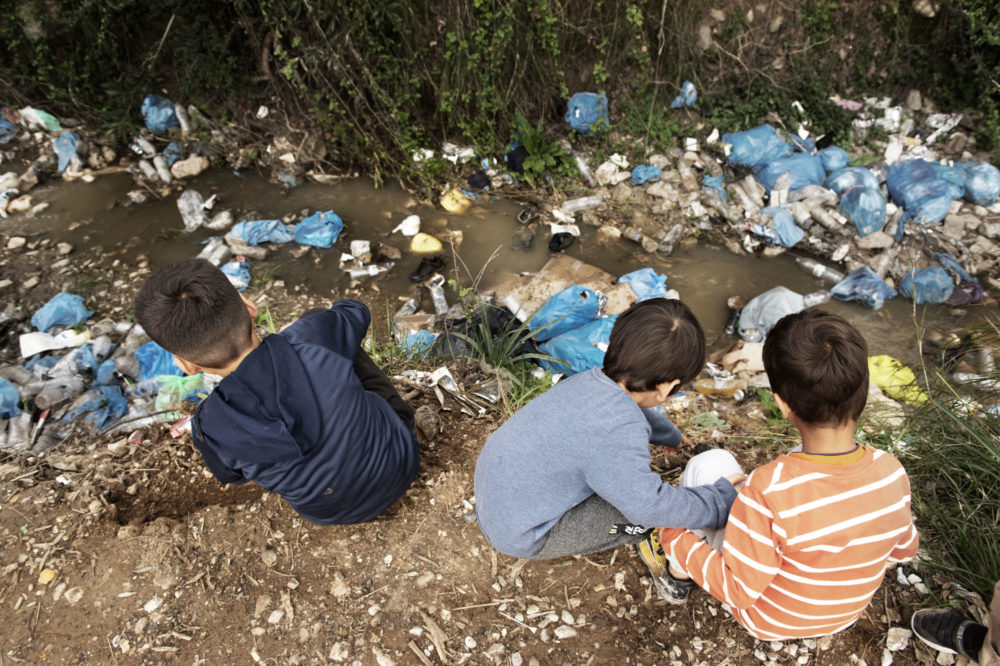
Theirworld report calls for urgent action on Greece’s refugee education crisis
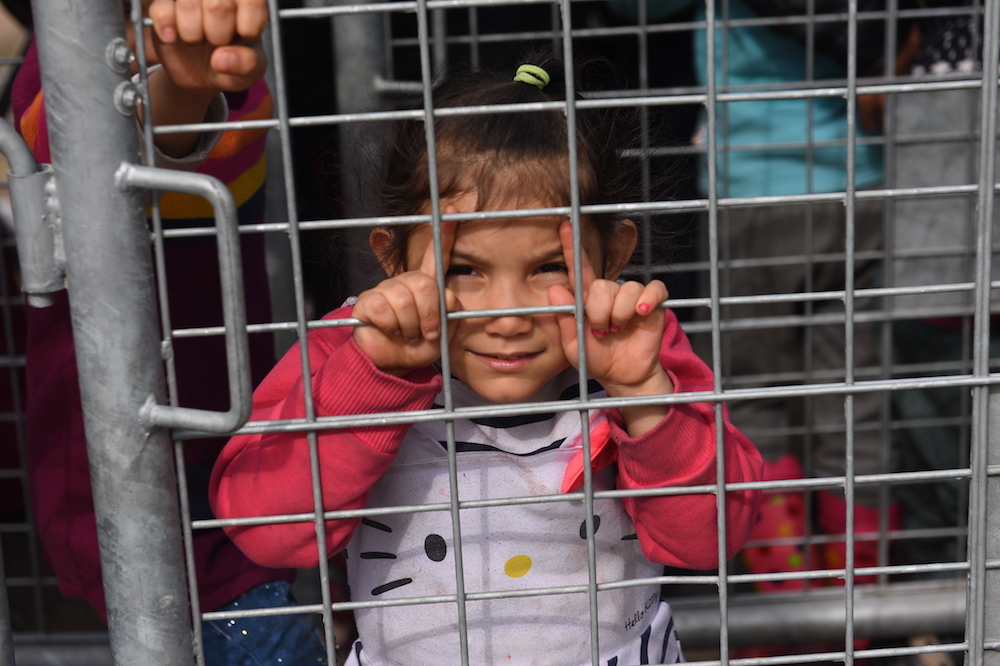
Justin van Fleet, Refugees and internally displaced people
Our research concludes that 20 million euros are needed to keep crucial educational programmes for children on the Greek islands running beyond June.
Vital education services for thousands of refugee children on the Greek islands will end in June without urgent action from the international community, a new report from Theirworld warns today.
With the refugee crisis in the islands at breaking point, our research says that vulnerable children who have often fled conflict in Syria or Afghanistan are in danger of being abandoned by donors.
They also face the additional threat of the coronavirus, which the Greek government has described as a “ticking health bomb” in island refugee camps.
Funding for existing education programmes will run out when the Greek school year closes at the end of June. But major donors such as the European Union, the UK and Scandinavian countries are nowhere near reaching agreement on an extension.
Theirworld’s research has concluded that 20 million euros are needed to safely keep open educational programmes operated by UNICEF and UNHCR and local aid groups for another two years.
Closure would deprive children of badly-needed classes which give them a sense of normality and the chance to at least imagine a better future.
“Even if only for a few hours a day, these classes offer a stark contrast to their existence in overcrowded camps blighted by poor diet, sanitation, high tension and sometimes violence,” said Justin van Fleet, President of Theirworld.
“In the big picture this is not a great deal of money – but it would go a long way towards not only making life bearable for children who have already endured so much but also towards investing in a safer and healthier long-term solution.”
To make matter worse, Covid-19 is now threatening to take hold among a refugee population of 42,000 on the islands that has no access to healthcare.
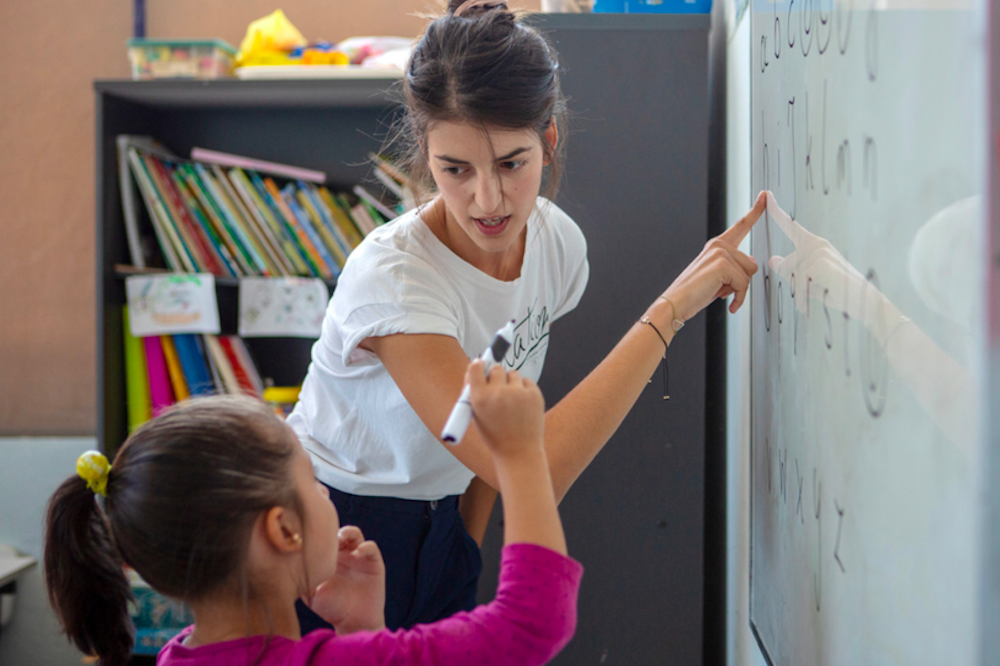
A teacher instructs a pupil in the Greek alphabet at the Tapuat Centre on Lesvos, which is supported by Theirworld (Theirworld / Yorgos Kyvernitis)
Their News has been reporting on the education crisis on the islands and the effect of coronavirus. Read our coverage of the challenges.
Theirworld is supporting appeals by UNHCR and UNICEF for $1.5 million in emergency funds to extend remote learning for refugee children whose education has almost entirely been stopped by the pandemic.
As of late 2019, less than a third of 5,300 school-age refugee children on the islands were receiving any schooling. There are now likely to be close to 6,000 as refugee numbers have continued to rise.
The 80-page report – Finding Solutions to Greece’s Refugee Education Crisis – was written by international education expert Maysa Jalbout and is based on extensive visits to Greece and dozens of interviews with key players in government, aid agencies and local NGOs.

Its three-point proposal calls on the international community to recognise the pressure and drain on Greece’s education system and to more actively support the country’s efforts with refugees over the next five years.
At the same time, it says the Greek government needs to demonstrate more thorough planning that the international community could then get behind.
The report also urges donor countries to make greater investment in the region to tackle the refugee problem closer to home. This would include fulfilling the very public pledge made in 2016 to educate every single Syrian refugee child, which would bring major improvements in Greece.
Refugees on the islands – chiefly Lesvos, Kos, Samos and Chios – arrive after often perilous boat journeys from Turkey. Some have gone without schooling for a year or more on their journey or because of conflict.
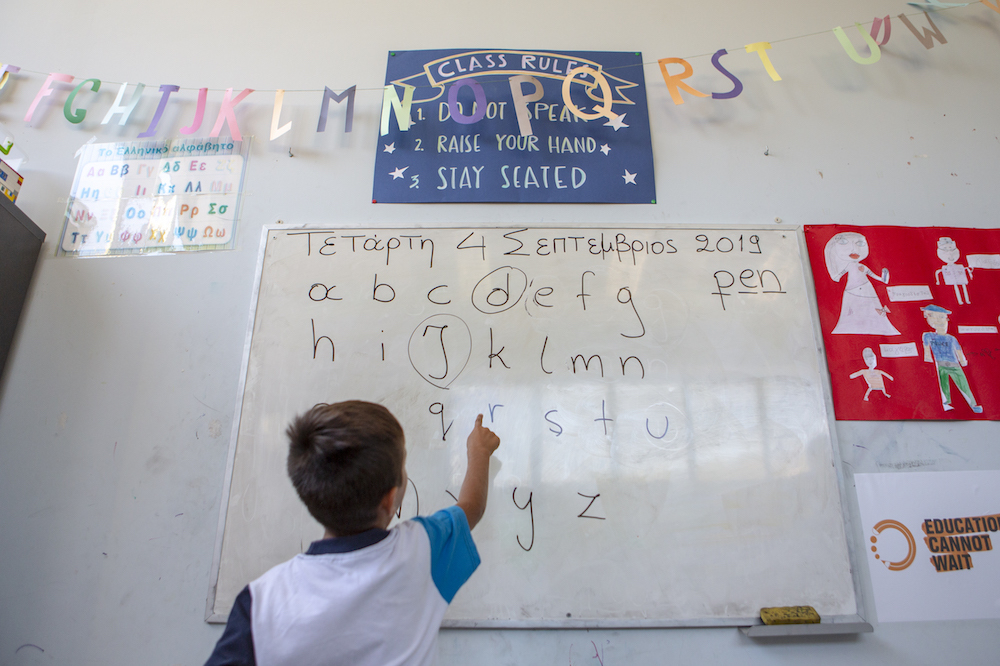
Numbers swelled earlier this year, with the Moria camp on Lesvos now “home” to 20,000 people, when it was designed for 2,500.
Families can become stuck on the islands in dire conditions for up to 18 months, even though they were mean to be little more than a way station under a deal for migrants reached between the EU and Turkey.
A total of 76,000 refugees have so far been transferred to the mainland where many hope for transfer to other European countries.
Theirworld has been helping UNHCR, UNICEF and partner organisations to send girls and boys to non-formal school classes on the islands. That includes support for the Tapuat Centre near the Moria camp on Lesvos.
Facts about the crisis
Children
The majority of Greece’s 118,000 refugees and asylum seekers are children and youth. 5,000 are unaccompanied minors.
Refugees
There are 76,000 refugees on the mainland and more than 42,000 on the Greek Aegean islands.
Schools
Of the 31,000 school-aged refugee children spread throughout Greece, only 13,000 were enrolled in formal schools in 2019-20.
Support
Last year, Theirworld was the largest financial supporter of refugee education on the Greek Islands through its partnership with Education Cannot Wait and Nationale Postcode Loterij, supporting the local organisations working alongside UNHCR and UNICEF.
Where the children are living in Greece
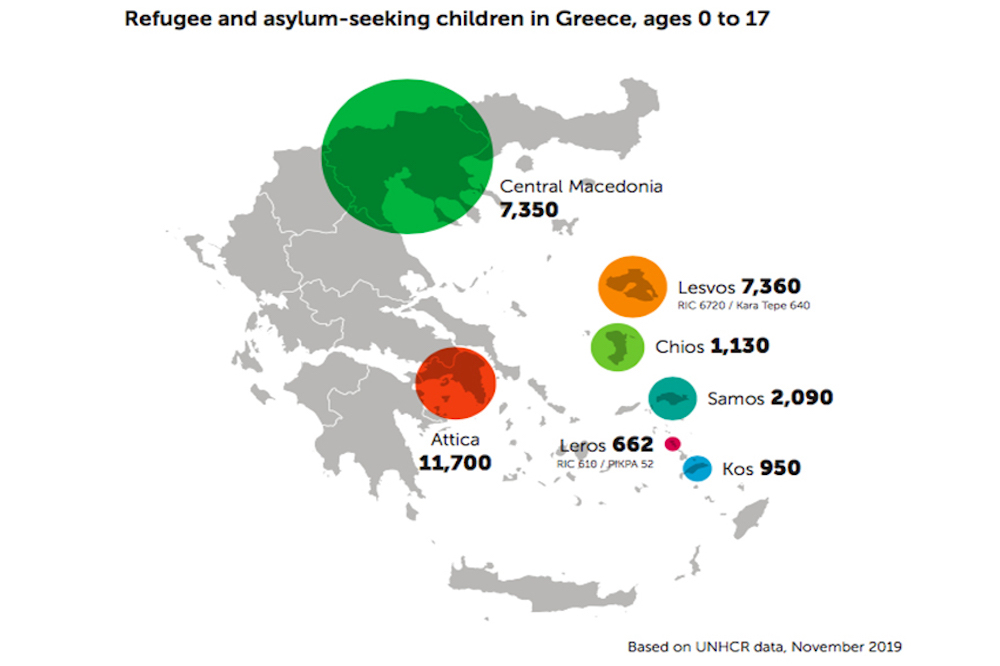
More news

Theirworld’s mission to give children in crises a safe place to learn
